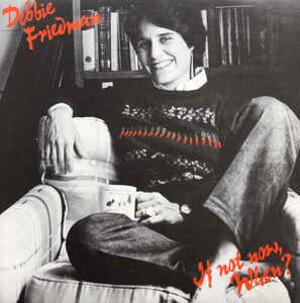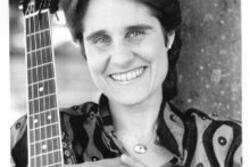Inspired by Debbie Friedman: Building Inclusive Movements
Growing up as a member of a Reform temple in self-proclaimed “chill Austin,” learning Hebrew was much less emphasized in our community than personal spirituality and Jewish philosophy. When I was a kid, I pretty much just memorized the foreign Hebrew syllables of prayers rather than understanding the actual Hebrew.
Debbie Friedman was the incredible mastermind behind my Hebrew learning, and for that matter, a good portion of the Reform Jewish kids I know. Her earworm melodies and upbeat choruses are forever imprinted on my heart. Over the years, I dutifully memorized every lyric to the tunes my cantor sang to us by Debbie Friedman.
Recently, I was making a playlist of Jewish songs and I realized that Debbie Friedman wrote basically every Hebrew song I know. Ah, the wonders of streaming. Her music was so influential to me that I’d previously assumed it was something of an ancient religious people. I imagine this is likely the case for Reform congregations across the world. Her music gave Judaism a modern voice; a sort of je nais se quois that resonated with every child and adult that had the privilege of hearing it.
Hearing the opening notes of Debbie Friedman’s songs, like “Mi Sheberach” or “V’ahavta,” brings back a wave of childhood nostalgia for me. I first learned her songs when I was in my synagogue’s pre-K Sunday school; her music was my first introduction to organized Judaism, Hebrew, and prayer. I still have them tucked away deep in my heart. Her music is present in my life both when I pray at my synagogue and in personal quiet moments, like driving to school alone and late at night in my room. Debbie Friedman once recounted that, when she first played “V’ahavta” for an audience, there were tears running down people’s faces.
Through her music, she empowered Jews to reclaim prayer and learn how to pray and experience Judaism in a new way. This is especially impactful within the Reform community, I feel, where traditional Jewish observance is not followed as strictly as in other denominations. Prayer can feel impersonal to those disillusioned with traditional Jewish spaces. If Reform Jews felt lost, Debbie Friedman gave them a path.
Through her music, Debbie Friedman literally and figuratively gave a voice to Jews across the world. She was not only an activist in her own right as a prominent Jewish woman influencing Jewish spaces through her art; she made everyone around her part of her activism, the very definition of inclusiveness. Her music was a concrete way to involve hundreds of thousands of Jews in the reclamation of their Judaism and, in turn, a selfless way to give back to her community. I believe this is a lesson that modern activists can take from Debbie Friedman.
Activist spaces can be extremely intimidating and polarizing. In such spaces, I’ve encountered the ethos that “to not be informed is to be ignorant.” I’ve felt like I don’t belong in certain spaces, and I don’t think that activist spaces should feel that way. An activist’s first reaction should not be to condemn those who don’t have shared knowledge or the same views, but to inform and educate. Debbie Friedman didn’t polarize her audiences; she brought them together with an interactive form of Judaism. I believe this method could be applied to contemporary movements. By involving participants rather than talking at them or having a few people be the only representative voices, everyone becomes an equal partner in the movement.
I didn’t realize that I was a part of and impacted by Debbie Friedman’s movement to bring Jews together through music until I began researching her. With every song our congregation sang along to, and every lyric I whispered to myself, I stood with Debbie Friedman in her mission to reignite Jewish passion through music. Her teachings were absolutely integral to my experience growing up, and I’m not sure what my prayer would look like today without her.
Activism today can be hostile. People with different knowledge levels and lived experiences may find it hard to see other points of view, perhaps even slandering and attacking others. But instead of shutting people out, I hope that contemporary feminists can learn from Debbie and bring groups together through interactive art and language that is relatable and healing. Through earnest inclusivity, I believe that everyone can find acceptance.
This piece was written as part of JWA’s Rising Voices Fellowship.






